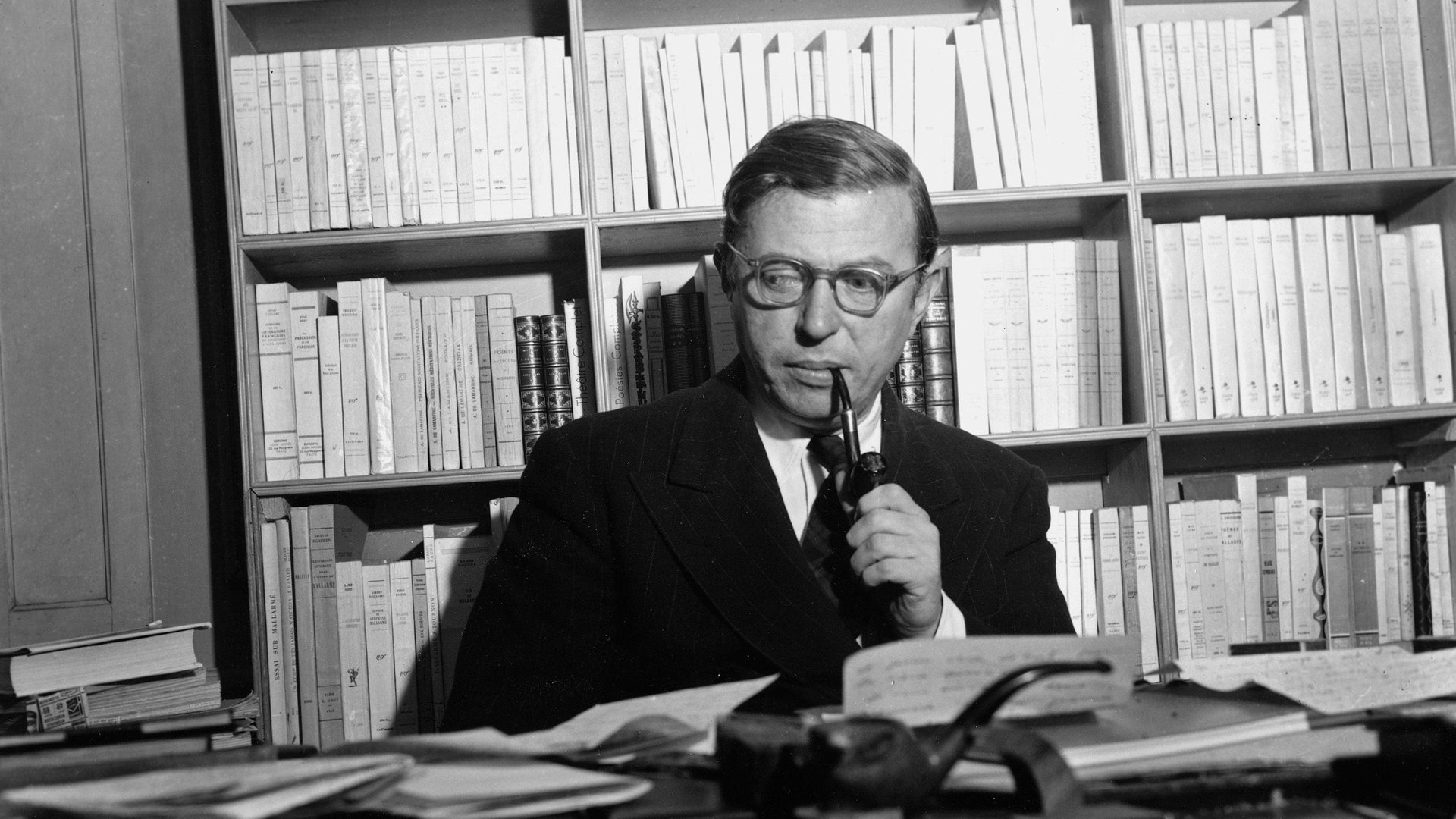Jean-Paul Sartre was the original self-help guru
Long before I read French philosopher Jean-Paul Sartre, I had a clear idea of who he was. Or who I thought he was. I knew all about the turtleneck-wearing, chain-cigarette-smoking, moody sort of soul, with a melancholy philosophy to match. After I opened his books, though, it became clear to me that this brooding reputation didn’t match the reality. His words, to me, didn’t read like those of a poet in crisis, but like something that would not look out of place in a self-help book.


Long before I read French philosopher Jean-Paul Sartre, I had a clear idea of who he was. Or who I thought he was. I knew all about the turtleneck-wearing, chain-cigarette-smoking, moody sort of soul, with a melancholy philosophy to match. After I opened his books, though, it became clear to me that this brooding reputation didn’t match the reality. His words, to me, didn’t read like those of a poet in crisis, but like something that would not look out of place in a self-help book.
In his peppiest work, the 1946 lecture Existentialism is a Humanism, Sartre takes issue with the notion that existentialism—the philosophy that asserts humans must search for and create their own identities and meaning—encourages despair. On the contrary, Sartre says in this essay (and elsewhere in his writing) that “man is nothing else but what he makes of himself.”
In language that is far more quirky than melancholic, he argues that this trait distinguishes humans from “a patch of moss, a piece of garbage, or a cauliflower.” While there’s not much moss can do about what it is, Sartre says, humans must create themselves through actions and choices. In other words, “man will be what he will have planned to be.” This self-deterministic mindset sounds little like the fatalism typically associated with Sartre.
Of course, existentialism’s gloomy reputation must’ve come from somewhere, and Sartre does make a big thing about the fact that, because we create ourselves, we are “condemned to be free,” he writes. This is quite the burden. If someone’s a coward, Sartre writes, that’s his fault. “He’s not like that because he has a cowardly heart or lung or brain; he’s not like that on account of his physiological make-up; but he’s like that because he has made himself a coward by his acts,” Sartre writes. In a self-help book, this would be the “real talk” section.
William McBride, philosophy professor at Purdue University, agrees that Sartre’s work is “inspirational” and that there are parallels between the work of the French philosopher and contemporary self-help texts. “We can in fact make ourselves,” says McBride. “That’s what self-help I guess is all about: making oneself.”
How Sartre’s version of self-help saved France
The similarities between Sartre and self-help not merely coincidental. Sartre’s groundbreaking work and ideas influenced society and have become, over the years, a form of accepted wisdom, to the point that it has trickled down to self-help mantras. As McBride points out, for example, France’s post-World War II recovery can be at least partially attributed to the societal impact of Sartre’s work. “A real despair and sense of being largely determined by circumstances would have been one reaction,” he says. “Sartre’s existentialism opposed that in a dramatic way and I think contributed to quite a positive atmosphere in France after the war.”
The two world wars painted a damning picture of humanity and Sartre’s philosophy made the case that humans are not destined to continually commit the atrocities of the past, but have the potential to interact differently and peacefully.
Sartre was a major public figure, with a level of fame of which philosophers today can only dream. He became an active political commentator towards the end of the World War II, and continued to weigh in on public debates and write in newspapers for general audiences in the years following. His political influence was so weighty that the French Communist Party considered Sartre’s existentialism a threatening alternative system of for those who might otherwise commit to communism.
Many writers and artists have been influenced by Sartre in the year since, says McBride, and, in their work, reflected the French philosopher’s existential views. Artists such as Alberto Giacometti and Francis Bacon wrestled with existentialist themes, as have writers from Samuel Beckett to Graham Greene. In this way Sartre’s philosophy has rippled out through creative works and infiltrated broader society. These writers may not have focused explicitly on self-help, but they explored the weight of individuals’ responsibility for their own destiny and other existentialist themes. Such ideas, in turn, permeated mainstream views on the self and spread to the self-help genre.
Sartre’s version of self-help is the best version of self-help
Not only is Sartre the original self-help writer, but also the best. His ideas aren’t simply inspirational catchphrases, but fit into a coherent and compelling view of humanity. Though Sartre’s work shares the self-help industry’s focus on human potential, he is far more nuanced than typical works of contemporary self-help, which tend towards the facile and shallow. Whether writing for fellow academics or for a wider audience, Sartre is remarkably straightforward and clear, and far more beautiful than the typical self-help paperback.
The comparison between Sartre and self-help might tarnish his cool-guy public image, but it should also puncture his unnecessarily intimidating reputation. And perhaps it isn’t surprising that self-help has piggybacked off of some of Sartre’s most groundbreaking ideas. Self-help, after all, aims to show readers how humans must take control of their destiny to live well. Sartre makes clear that we cannot avoid responsibility for our destiny. “What is not possible is not to choose,” he wrote. “I can always choose, but I must know that if I do not choose, that is still a choice.”